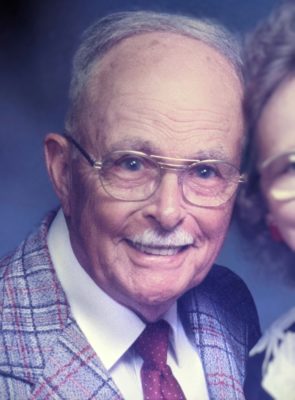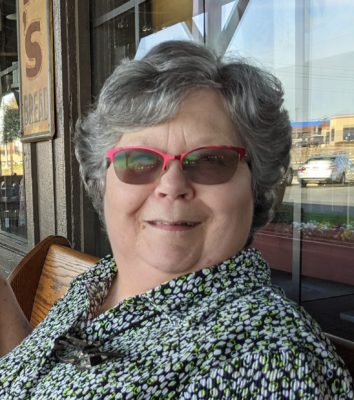This post describes, my recovery from the loss of my wife to a degenerative neurological condition called Huntington’s Disease. She was healed of this condition when she went to live with our Heavenly Father at 2:30AM, the 10th of January 2021. You can read the announcement here.
Or if you would like to read our story from the beginning, you can start with: How We Got Here…
Last week I began to realize how crazy life was getting. I had an idea to look for some of my posts written over the past year and a half, and rework/update them. I ran the first one last week and had a pretty good reception, so let’s try another one.
As with last week, the procedure was for Jean to go through the posts and identify one that she felt was an “evergreen” topic. It originally bore a title that indicated it was about loneliness – but it really wasn’t. Hopefully this title is better. It originally ran February 9th of 2020.
❦ ❦ ❦ ❦ ❦ ❦
Something that I have been trying to track down for a while now is the source of the intense loneliness that I am experiencing. Over this week and next, I want to look at some of the sources and resources that I have identified. Note that some of these sources will be common to all caregivers, while others may only apply to men. I don’t know – we’ll see.
My first thought was that the sense of being alone was related to Janet’s inability (or at times unwillingness) to say, “I love you.” This is certainly a common enough complaint. I have read many dozens of heartbreaking posts on Facebook with the same refrain: If only I could hear my husband/wife/child/mother/father tell me that they love me just one more time, but now they are apathetic and distant – or conversely they are angry and abusive.
Unfortunately there is a lot of bad advice being handed out in response to these posts – often by people who, though presumably well-intentioned, are in fact far more interested in maintaining the façade of normality than they are in solving any problems. Typical of this sort of response was one I read the other day that asserted, “HD or no HD, no one has the right to treat you that way!” This statement has so much wrong with it that it’s hard for one to decide where to start. The main issue for me, is that the speaker clearly has no idea how devastating a disease HD is for the patient. Instead, they seem almost totally fixated on their pain, their problems, and their rights.
If that is your view, let me clue you in, Buttercup, HD isn’t a head cold that you can get through by “toughing it out.” It is also not a choice like drinking or abuse. And your loved one is certainly not faking it or trying to selfishly manipulate you. Rather, you and the afflicted are living in a nightmare reality where any sense of “normal” is at best wishful thinking, and at worst a cruel hoax. If you haven’t grasped this fundamental truth, you need to do so now because there are no easy ways out. There are, in the end, only two options: you can choose to stay and be called a saint, or choose to leave and be called a selfish jerk – or something worse. In either case, the label will be correct. There are no other alternatives.
Then there are those who will say, “Oh, but what about the children? You have to protect the children!” That is undoubtedly true, but there is a hard truth to be recognized here as well. Children learn from what they observe. If they see Mommy or Daddy knowingly and mindfully sacrificing themselves out of love for a spouse or another loved one, the children will learn the depth of commitment and the holiness of sacrifice.
If, however, they witness Mommy or Daddy abandoning a loved one when the stuff starts to seriously hit the fan, they will learn that there are limits to the love of Mommy or Daddy. And let’s not forget that we are talking about an inherited disease. They will also learn that if I develop this disease, Mommy or Daddy will have no qualms about abandoning me too.
But even if they don’t inherit the gene, the problem of “limited love” still exists. The children can and do start obsessing about what else could cause them to be abandoned. What if I’m gay, or start drinking, or use drugs, or marry someone they don’t like, or fail at school, or start practicing a different religion, or wear too much makeup, or … ?
For her amazing first album “Jagged Little Pill,” Alanis Morissette wrote an autobiographical song named Perfect. This song is pertinent to our current conversation, because the last line has the parent affirming:
We’ll love you just the way you are,
If you’re perfect.
Yes, by all means, let’s “protect” the children – but from what? There is no demonstrable benefit to shielding even small children from harsh realities and hard truth. In fact, children are amazingly resilient when it comes to dealing with adversity as long as they know that they are safe. To see what I mean, think about the kids who are suffering from juvenile HD – like an amazing 13-year-old girl I knew about in Michigan who didn’t live to see 16. Her strength and courage was truly humbling. And then there are the siblings who, like that girl’s two big sisters and little brother, take it upon themselves to be best friends, advocates, playmates, and defenders for their sick sister, even though they know full well the inevitable outcome.
Finally, what is all this talk about rights anyway? If someone was injured in a car wreck, would you go running up to them and demand to know who gave them the right to bleed all over the street? Well, maybe if you are in a Monty Python skit, but no rational person would behave in that way. When you are cut, bleeding is not a voluntary act. However, expectations change when someone’s brain is dying. Suddenly the sufferer becomes responsible for all of their symptoms, and they are held accountable in ways that no other injured person is ever expected to be.
So if that comment is typical of the bad advice out there, what constitutes good advice? Well, first and above all, learn as much as you can about the disease that you are fighting so you can always maintain a realistic view of what is happening and what is possible.
But the most important thing we can do to handle apparent rejection and/or anger from a loved one is to remember that regardless of how bad or random things feel, there is someone in control: God. Of course people will put forward objections to what is for them a very hard truth. For example, there are the people who claim to be atheists because they couldn’t worship any God who would create HD. As much as I would love to address this view, there are so many fundamental errors in that one statement that addressing them in even a cursory way would take us far beyond the scope of this post. Still if you want to discuss it, send me a comment and we can talk. Alternately, C.S. Lewis wrote an exceptional book on this general topic called The Problem of Pain. As it so happens, I have 10 copies of this book on hand and I will ship a copy free of charge to the first 10 mailing addresses that are left in a comment to me.
A far more manageable point is illustrated in this hypothetical conversation:
“If God truly loves my husband/wife/etc./etc./etc., why isn’t He doing more to help them?”
“Well actually He is, and when you think about it, it’s really miraculous what He is getting done.”
“Oh yeah? What is God doing for them that is so miraculous?”
“You. He is doing you.”
Do you think your relationship with your loved one is an accident or random chance? It is not. As caregivers we need to learn to recognize the ongoing miracle that is our life and relationship with the one for whom we are caring. As an example of what I’m talking about, consider my case with Janet. When Janet first started experiencing physical symptoms, we were living in Knox County, Ohio. Despite going to multiple doctors, she was getting a variety of different diagnoses as to the cause of her troubles.
Then “coincidentally” I lost my job and the only one I could find was in western Pennsylvania. But when the doctor there looked at Janet, he realized that there was something neurological going on and gave us a referral to a neurologist.
The neurologist who “coincidentally” we were referred to was basically a bulldog in a white lab coat. I have no idea how many things Dr Brian Cotugno of Washington, PA (bless him) tested Janet for, but his gut told him there was something wrong and he was determined that he was not going to quit until he found out what it was. And he did. But, a new problem arose: at the time Janet got her diagnosis, the Huntington’s Disease Society of America (HDSA) did not have a Center of Excellence (COE) in western Pennsylvania. In fact, the nearest one was 4 hours away at the OSU Medical Center in the state we had just moved from!
Then “coincidentally,” less than a week later, the company I worked for got a contract at Wright-Patterson AFB and decided to move me to Dayton, Ohio to service it – 45 minutes from OSU. While going to OSU, Janet was under the care of Dr Sandra Kostyk, a wonderful doctor who taught me my first fancy medical term: Perseveration.
Then when Ohio winters started getting too bad for Janet and we started contemplating a move south, I was able to find a job in Houston, Texas, which “coincidentally” has a COE at the UT Medical Center (where we are now seeing Dr Erin Furr-Stimming). And the management company that owned the apartment complex we lived in also “coincidentally” owned a complex in Pearland (just south of Houston) which significantly lowered the cost of the move by allowing all our deposits to be transferred. Not only that, but now I am working for a company whose CEO “coincidentally” had a brother who died of HD and so understands at a very personal level what I am going through.
And these are only the major “coincidences” in our lives. Now I suppose that all those things could have just lined up in the right way by accident, but at some point it requires less faith to simply believe that God is in control.
In Christ, Amen ☩
❦ ❦ ❦ ❦ ❦ ❦
A prayer for when you have lost so much that you feel no good options are left…
“Blessed are You, Lord God, King of the Universe. It is right that I should at all times and in all circumstances bless You for always being present in our lives. But today I want to bless You especially for the ways that You support and reassure me when I feel like I have lost so much – or perhaps everything. The problem is that I can’t see things from Your perspective. Teach me to believe without seeing and show me how to guide others along this same path. Amen.”


